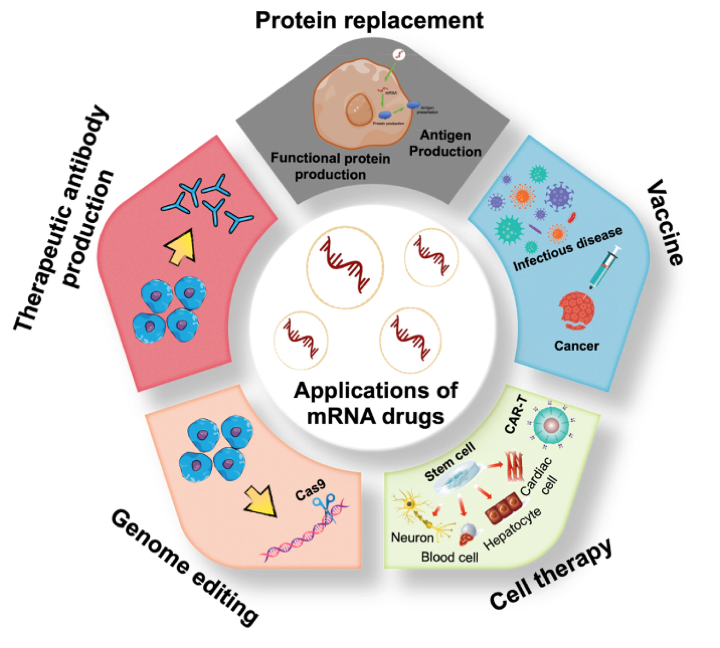mRNA-based vaccines and therapeutics: an in-depth survey of current and upcoming clinical applications
- Author:Yu-Shiuan Wang, Monika Kumari, Guan-Hong Chen, Ming-Hsiang Hong, Joyce Pei-Yi Yuan, Jui-Ling Tsai & Han-Chung Wu
- Journal: Journal of Biomedical Science https://link.springer.com/article/10.1186/s12929-023-00977-5
mRNA-based vaccines and therapeutics have tremendous potential as clinical treatments. In a recently published review article, Dr. Han-Chung Wu’s group at the Institute of Cellular and Organismic Biology (ICOB) and Biomedical Translation Research Center (BioTReC) comprehensively discuss the latest research results, current clinical trials, and future development potential of mRNA drugs.
The review summarizes current knowledge of mRNA drugs and provides a framework to understand the main challenges in developing mRNA drugs that do not induce adverse immune responses. To overcome this key obstacle, mRNA vaccines include nucleic acids with modified mRNA structures, which enhance stability and promote systemic tolerance of antigen presentation in non-inflammatory contexts. However, delivery of naked modified mRNAs is inefficient and results in low levels of antigen protein production, so lipid nanoparticles have been utilized to improve delivery and protect the mRNA cargo from extracellular degradation. This advance was a major milestone in the development of mRNA vaccines and dispelled skepticism about the potential of the technology to yield clinically approved medicines. Following the resounding success of mRNA vaccines for COVID-19, many other mRNA-based drugs have been proposed for the treatment of a variety of diseases. The review begins with a detailed discussion of the mRNA modifications and delivery vehicles that have become essential features of mRNA-based drugs, as well as the factors that influence administration routes. Then, the article summarizes the potential clinical applications of mRNA-based drugs and discusses further key points pertaining to preclinical and clinical development of mRNA drugs for a wide range of diseases. Finally, the review provides information on the latest market trends and future applications of mRNA-based drugs. The work was published in the Journal of Biomedical Science, with Dr. Yu-Shiuan Wang, Dr. Monika Kumari, and Dr. Guan-Hong Chen as co-first authors. The content of this article can be an essential resource for individuals in government, academia and industry seeking to better understand the current challenges associated with this new class of drugs and find better strategies for mRNA-based drug development.


